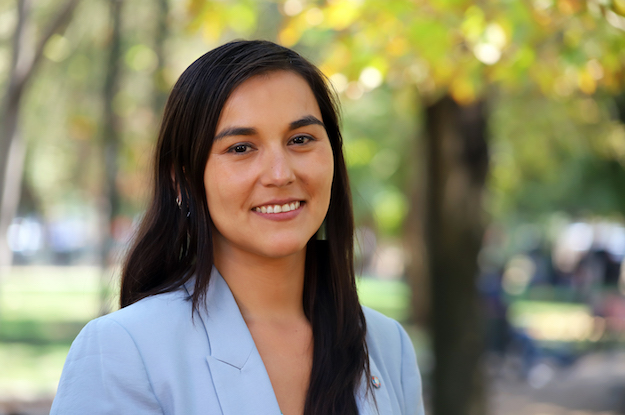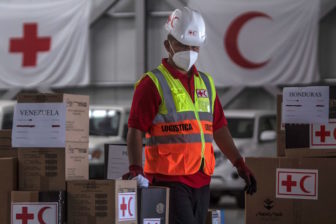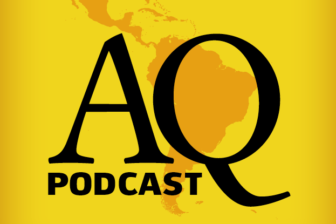SANTIAGO – When Chile’s medical union, the Colegio Médico, elected Izkia Siches as its president in 2017, it made history, choosing its youngest-ever and first female leader. As a dynamic, young doctor of Aymara descent, Siches’ victory was welcomed by many as an important generational shift.
Three years later, as the greatest public health crisis in generations overlaps with an explosive social movement that has rocked Chile since October, Siches, now 34, has led the country in promoting a message of unity, inclusion and clear thinking.
“From the very beginning of the crisis, the government kept its distance from the unions and other actors,” Siches explained with the calm, authoritative air that has characterized her public appearances.
“But we must get the people on the same side because this challenge is not just governmental,” Siches told AQ. “It requires everybody’s participation.”
Chile has been hit hard by the coronavirus pandemic, with cases confirmed in every region of the country – even in the remote territory of Easter Island – and at least 16 deaths, as of April 1. With the winter flu season fast approaching and capacities already stretched, there is an uncomfortable feeling that the worst is yet to come.
Amid the crisis, Siches’ affable yet stern leadership has won her praise from across the political spectrum. As the spokesperson for the medical community, she has embodied calls for regions with confirmed cases to be quarantined even while the government resisted, and has questioned the administration’s transparency with regard to the statistics it has published.
Exemplifying the flexibility of a new generation of leaders, Siches has been equally at home communicating via video messaging app TikTok as she has meeting with President Sebastián Piñera and his top advisors in the presidential palace.
Her drive for inclusion in the health agenda has seen her hold court with Santiago’s mayors, national party leaders and even secondary school student unions.
Born in the city of Arica on the Peruvian border in 1986, Siches moved to the lower-middle class district of Maipú, south of Santiago, when she was three years old. She now works alongside her sister at San Juan de Dios Hospital in the center of the capital.
Siches joined the communist youth wing at the University of Chile when she enrolled as a medical student in 2004, where her passion for politics blossomed and laid the foundations for a steep ascent into the leadership roles – and eventually being elected to lead the Colegio Médico’s Santiago branch in 2014.
As some on social media have made tongue-in-cheek calls for Siches to be anointed health minister, others have demanded her resignation, claiming that she was compromised by her ideology.
But although Siches is inherently political and has often seemed at odds with the government as the pandemic spread, she has not affiliated herself with a political party during her career and has maintained that her objective is to bring unity, not destabilize the establishment.
Nonetheless, as personal attacks have increased in frequency, her years in the communist youth movement have been exploited for criticism, and she has been frustrated by repeated inquiries into her personal life.
“It’s been exhausting!” Siches exclaimed wearily, noting she’s barely slept in weeks. “Medical professionals aren’t used to this level of public exposure.”
Siches’ appeal has led many to ponder her political ambitions in a country undergoing a profound transition. She says she’s put off by elections and the “nastiness” of politics, but “would give everything I have to build a more modern health sector.”
More than anything, her recent protagonism belies a broader ambition to democratize healthcare in Chile.
“This pandemic could be a great opportunity to implement a more robust public health system,” Siches told AQ, drawing parallels to the UK’s overhaul of its health system after the Second World War. “We could push for a system that doesn’t depend so much on the governments in power, so that when the next pandemic hits we aren’t stuck here arguing between government and opposition.”
“This could end up being our war.”
—
Bartlett is a journalist based in Santiago








